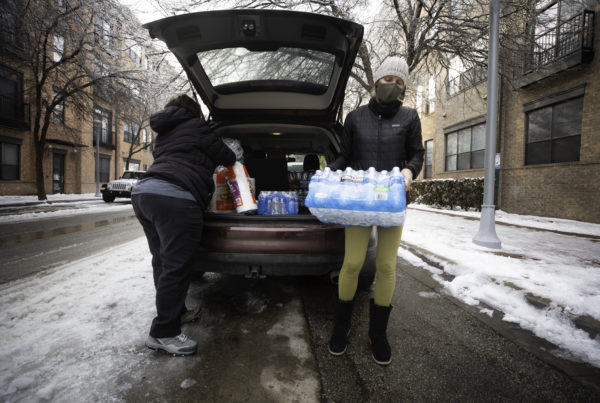From The Texas Tribune:
For 24/7 mental health support in English or Spanish, call the Substance Abuse and Mental Health Services Administration’s free help line at 800-662-4357. You can also reach a trained crisis counselor through the Suicide and Crisis Lifeline by calling or texting 988.
At least 118 women dead and nearly 200 children left without a mother.
This was just a portion of the death toll from pregnancy and childbirth in Texas in 2019, according to a long-awaited state report published Thursday.
Severe medical complications from pregnancy and childbirth also increased significantly between 2018 and 2020, surging from 58.2 to 72.7 cases per 10,000 deliveries in Texas.
As in past years, the tragedy of maternal mortality unfolded unevenly across the state, impacting Black women worst of all.
This is the fifth biennial report from the state’s Maternal Mortality and Morbidity Review Committee since the Legislature formed it in 2013, and the first to review more timely cases; the previous report reviewed cases from nearly a decade ago.
In 2013, Black women were twice as likely as white women and four times as likely as Hispanic women to die from pregnancy-related causes. A preliminary assessment of 2019 data indicates those trends have persisted.
The report determined that discrimination contributed to 12% of pregnancy-related deaths in 2019. This was the first such report since the federal Centers for Disease Control and Prevention added discrimination, including structural and interpersonal racism, as a potential cause of maternal death. The specific nature of discrimination varied between the cases identified by the committee and did not show a specific trend, the report said.
In 2018, a subcommittee was created to address these continued disparities by helping design a tool to better determine when and if discrimination plays a role in maternal deaths.
The report also found that most of these deaths were preventable — in 90% of 2019 cases reviewed by the committee, there was at least some chance of saving the woman’s life.
Obstetric hemorrhage was the leading cause of pregnancy-related death in Texas, accounting for a quarter of cases. While there were fewer severe complications from hemorrhage overall, Black women saw their rate of complications increase nearly 10%.
The most common cause of hemorrhage deaths was ectopic pregnancies, in which a fertilized egg implants outside the uterus. Left untreated, these nonviable pregnancies can rupture, causing life-threatening complications such as severe blood loss and sepsis.
Suicide and homicide represented 27% of pregnancy-related deaths in Texas, most commonly via firearms and airway restriction, such as hanging, strangulation and suffocation. Homicides were most often perpetrated by intimate partners.
Recommendations
The committee’s recommendations to address the state’s persistently high maternal mortality rates look very similar to those of past years. Once again, the top directive is to expand access to comprehensive health services during pregnancy and the year after childbirth.
“Healthier women become healthier mothers, who contribute to healthier infants, families, and communities,” the report concluded. Women without private-pay insurance coverage faced the highest rates of severe maternal morbidity.
In the last legislative session, the House approved 12 months of postpartum Medicaid to benefit the poorest mothers in the state, but the Senate reduced it to six months; now even that proposal is in bureaucratic limbo.
Republicans in the House, including Speaker Dade Phelan, have said getting 12 months of postpartum Medicaid approved is a top priority for the upcoming session.
The committee also recommended improving access to behavioral health services for women with mental health and substance use disorders, from before conception through the postpartum period. Mental health conditions were the second-most-common cause of pregnancy-related death, according to the report.
The committee also called for more support for those facing intimate partner violence; increasing capacity and diversity of the state’s maternal health workforce; and standardizing protocols for responding to obstetric and postpartum emergencies, among other recommendations.
This report is intended to help legislators craft bills ahead of the 2023 legislative session, which gavels in on Jan. 10. It was supposed to be in lawmakers’ hands by Sept. 1, but state officials said it was delayed to allow for a more complete review of 2019 cases.
Many maternal health advocates criticized the report’s delay as politically motivated and harmful to women, especially in light of the state’s near-total abortion ban.
“Suppressing and withholding data … is dishonorably burying these women,” Nakeenya Wilson, a community advocate on the committee, said at a hearing last week. “In my opinion and the opinion of many of my colleagues, there was no need for a delay.”













